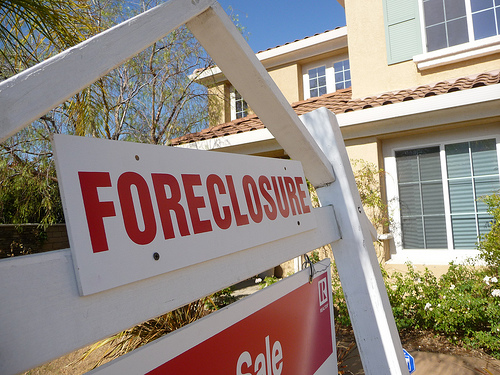
Hundreds of thousands of hard working families have lost their housing while millions of other troubled borrowers continue to desperately seek modifications so they can keep their homes. California continues to suffer from severe devastation from the economic crisis that was largely fueled by the collapse of the housing market. The state has come to be known as “ground zero” in the national foreclosure crisis due to rampant predatory lending and the sudden bursting of the housing price bubble.
State and local governments are taking quite a hit as well. At every level of government, budgets are being negatively impacted; severely hampering its functionality. Our education system is in shambles, public safety is being threatened, our roads are crumbling, and safety net programs are being slashed, at a time when people need them the most.
Bank foreclosures are costing our state and local governments billions of dollars –- money that could be spent on adequately funding the services that Californians value. State policymakers really ought to take a closer look at the damaging impact that foreclosures have on state and local budgets, and find ways to fill those gaps, while incentivizing modifications for troubled borrowers in order to further stabilize our economy.
It’s quite simple — Wall Street and the big banks crashed the economy. Then, Washington made $4.7 trillion available to those banks and corporations, who said that a “bailout” was absolutely necessary in order to save companies and stimulate the economy.
Banks were to extend credit to small businesses and entrepreneurs to create jobs while also providing relief to troubled homeowners to help them save their homes. Most of those small business owners and homeowners are still waiting for help or have already lost their businesses or homes.
The banks were bailed out and working families were sold out. Today, unemployment in California remains at 12.4% and 10,000 to 20,000 families a month continue to lose their homes. Local and state governments continue to struggle with record setting deficits, as those same banks continue to burden our state and local economies.
In a 2005 study by the Homeownership Preservation Foundation, it was estimated that each foreclosure generates between $430 and $19,227 in direct costs to cities. These costs come from code enforcement, increased police expenses due to increased crime, loss of utility payments and taxes, and also loss of property taxes when a borrower walks away from a property before a foreclosure.
Foreclosures are not just a problem for banks and borrowers. Foreclosures are a problem for all of us as taxpayers and it is time for our state government to develop a policy to offset these costs. Last year there were approximately 250,000 foreclosures in our state. If the California legislature placed a $20,000 fee on foreclosures at the time of a notice of default, up to $5 billion would have been generated that could have been used to mitigate the direct costs that a foreclosure places on governmental budgets. This fee could even be used as a hook to incentivize a loan modification if it could be returnable to a financial institution if a modification is given.
Year after year, state and local budgets have been primarily balanced on the backs of those who can least afford it. Instead of declaring war on the poor and public employees, or cutting the vital services we all value, our state leaders should really look at the devastating economic impact that has been created by the greed of the big banks, and the subsequent foreclosure crisis, and find ways to make the banks pay their fair share towards rebuilding California.
Ronald E. Coleman is Legislative Director for the Alliance of Californians for Community Empowerment.
This piece is one in a series on the fiscal challenge facing California, produced in partnership with the Working Families Summit and the California Center for Research on Women and Families.





